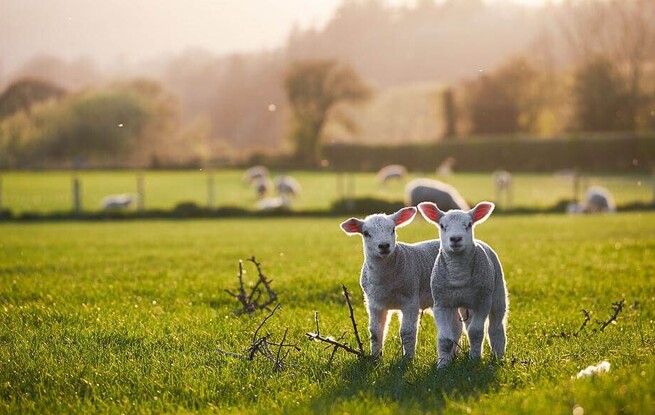Put your hand up if, every year in late summer, you have a beautiful mob of lambs ready to go to the works, then you find one or more suddenly dead in the paddock a few days before the truck comes?
This tends to be relatively common on sheep farms, and also in some beef mobs too. This sudden death syndrome in fat, fast growing lambs is usually due to a clostridial bacteria causing Pulpy Kidney. It can also occur when lambs are on a high-octane summer crop.
What can be done to prevent these deaths?
Most sheep farmers now routinely vaccinate their ewes pre-lamb with a clostridial vaccination. This vaccination causes a big production of protective antibodies in the ewes’ colostrum that then protects her lambs.
How long does this protection last for the lamb?
It all depends… how well the ewe made an immune response to the vaccination, how many other lambs are suckling from her, the amount/concentration of colostrum the ewe makes, along with many others. Recording lamb deaths and possible reasons why may enable you to see trends over the years of when the vaccine may be waning.
Are you getting sudden deaths after tailing?
Tailing is another important time when clostridial bacteria can cause deaths in your lambs, as the wound around the tail allows the bacteria in. Usually, it is the particular bacteria that causes Tetanus, so stiff legged lambs may be seen, or just suddenly dead lambs. If you are seeing cases like this after tailing, it may be a good idea to add a 5in1 vaccination to your animal health plan at tailing time.
How long will the vaccination at tailing last then?
Again it depends… on your farming system, how old the lambs were at tailing if lambs go onto crop, how fast they grow, the amount of bacteria on the farm (+ more). The next vaccination may need to be tailored to your farming system and risks, however, all lambs should probably get another vaccination around or just after weaning to try to prevent Pulpy Kidney from occurring in those nice fat lambs.
How much will this all cost?
Well, think about it the other way, if you lose one lamb due to clostridial disease right before it goes on the truck… that one lamb making it on the truck would pay for at least 300 other lambs to be vaccinated and protected (@ only $100 payout). So it's well worth it to have a robust clostridial vaccination plan in place, for both your sheep flock and your beef herd.
Right, I’ve got all that sorted, but how do I get my lambs on the truck quicker?
There are many different things to ensure are correct or to implement into your farming system. B12 supplementation is one of those things. Lambs need adequate levels of B12 in their body to ensure they can grow at their potential. They are unlikely to get enough from our pastures, so we need to top them up. There are many different supplementation options available, each with their own positives and negatives to weigh up. Injections seem to be the most common, and with this method, you know that each lamb has got the right amount to thrive (unless it snuck past you in the race) and it will work for a set amount of time.
Can I just give them 10ml of B12 to make them grow 10 times faster?
How good would that be! Unfortunately, it doesn’t work like that. Just like Vitamin C in humans, when our bodies reach the peak amount, we get rid of the rest. The same happens with sheep, if you give them too much B12, the extra in their system is disposed of in their urine! So you can actually waste money if you are giving B12 in too many forms, i.e. B12 in drenches, injections, and prills on pasture. Some lambs on particular farms may need all of this, however, on other farms you are just throwing money away.
Can we test the lambs then?
Yep of course. The best test is a biopsy of the lamb’s liver. We can do this procedure on live lambs with local anaesthetic, a metal probe, and a strong farmer to hold the lamb on its side (supposedly human liver biopsies are done in a very similar way too!).
As mentioned, there are many different forms of clostridial vaccinations and B12 supplementations, so it is best to discuss your best option with your vet.
- Lisa Roberts

